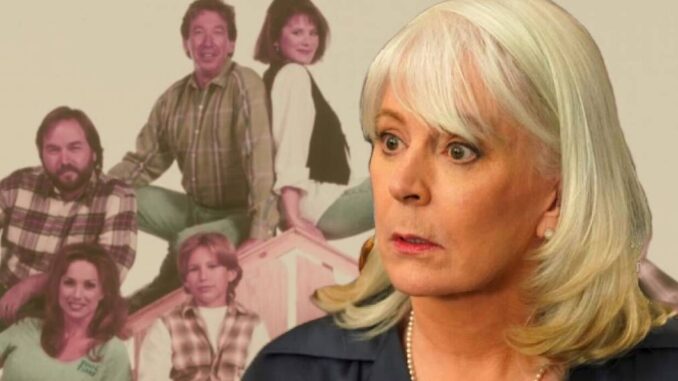
The Hammer Drops: When Home Improvement Turns to Public Feud
The scent of sawdust and varnish hangs heavy in the air. For decades, that smell, coupled with the sound of power tools, has evoked a feeling of comforting competence, thanks in no small part to the legion of home improvement shows that dominate our screens. We tune in to see kitchens transformed, bathrooms revamped, and attics converted into dream spaces. But what happens when the carefully constructed facade of helpful expertise cracks, revealing the messy, human drama beneath? When a perceived betrayal of trust in the hallowed halls of home improvement ignites a public feud? Such is the scenario unfolding as veteran renovator, Sarah “Sawdust” Miller, publicly calls out comedic icon Tim Allen for allegedly misleading fans about the true cost and complexity of home renovations.
Sarah Miller, a name synonymous with practical DIY and budget-friendly design, built her reputation on honesty and accessibility. Her show, "Home Truths," championed realistic expectations and detailed budgeting. It was a refreshing antidote to the often-glamorized and unrealistic portrayals common in the genre. In contrast, Tim Allen, through his iconic sitcom “Home Improvement” and subsequent ventures, became a symbol of the enthusiastic, albeit often bumbling, homeowner. Allen’s brand revolved around the thrill of powerful tools and the comedic consequences of amateur projects gone awry. The core of his persona, according to Miller, lies in a fundamental misrepresentation of the realities of home renovation, leading viewers down a path of financial frustration and DIY disasters.
Miller's accusations are multifaceted. She claims that Allen’s portrayals, both on and off screen, romanticize the ease and affordability of large-scale renovations. His characters often tackle complex projects with minimal preparation, relying on slapstick antics rather than informed decision-making. This, Miller argues, creates a dangerous disconnect between the televised fantasy and the stark reality of permits, plumbing, and potentially catastrophic costs. In a series of impassioned tweets, Miller wrote: “@RealTimAllen, your ‘More Power’ attitude is empowering people to bankrupt themselves and destroy their homes! Where’s the responsibility?”
The impact of this alleged misinformation, according to Miller, is felt most acutely by first-time homeowners. She claims her own show receives a deluge of desperate emails from viewers who, inspired by Allen’s comedic portrayals, embarked on ambitious projects without proper planning, only to find themselves buried under unexpected expenses and half-finished renovations. These viewers, she argues, are victims of a carefully crafted narrative that prioritizes entertainment over genuine education.
Allen, predictably, has remained largely silent on the specific allegations. His publicist released a brief statement emphasizing Allen’s comedic intentions and dismissing Miller's critique as “unfounded” and “attention-seeking.” This silence, however, has only fueled the fire. Miller's supporters, many of whom are seasoned contractors and frustrated DIY enthusiasts, have rallied behind her, sharing their own stories of projects gone wrong due to unrealistic expectations fostered by shows like “Home Improvement.”
The core of this conflict isn’t just about two celebrities airing dirty laundry. It’s about the ethical responsibility of those who shape public perception through entertainment. Does Allen, with his massive platform and cultural influence, have a responsibility to provide a more nuanced and realistic portrayal of home improvement? Or is he simply an entertainer whose primary obligation is to provide laughs?
This feud raises critical questions about the blurred lines between entertainment and education. In a world saturated with information, viewers often rely on television shows and celebrities for guidance, especially in areas like home improvement where specialized knowledge is required. The power to influence is undeniable, and with that power comes a responsibility to ensure that the information being disseminated is accurate and not detrimental to the audience.
Ultimately, the “Home Improvement Star Calls Out Tim Allen” saga serves as a cautionary tale. It's a reminder that behind the polished veneers of home improvement shows, there are real-world consequences to misrepresenting the true challenges of renovation. While laughter and entertainment are essential, honesty and responsibility should not be sacrificed on the altar of comedic effect. As viewers, we must cultivate a critical eye, recognizing that the perfect kitchen showcased on television may require significantly more than just “More Power” and a few well-placed gags. Perhaps the greatest lesson to be learned from this public feud is that true home improvement begins not with a power tool, but with a healthy dose of skepticism and a commitment to informed decision-making. Only then can we truly build a foundation for a successful and satisfying renovation journey.